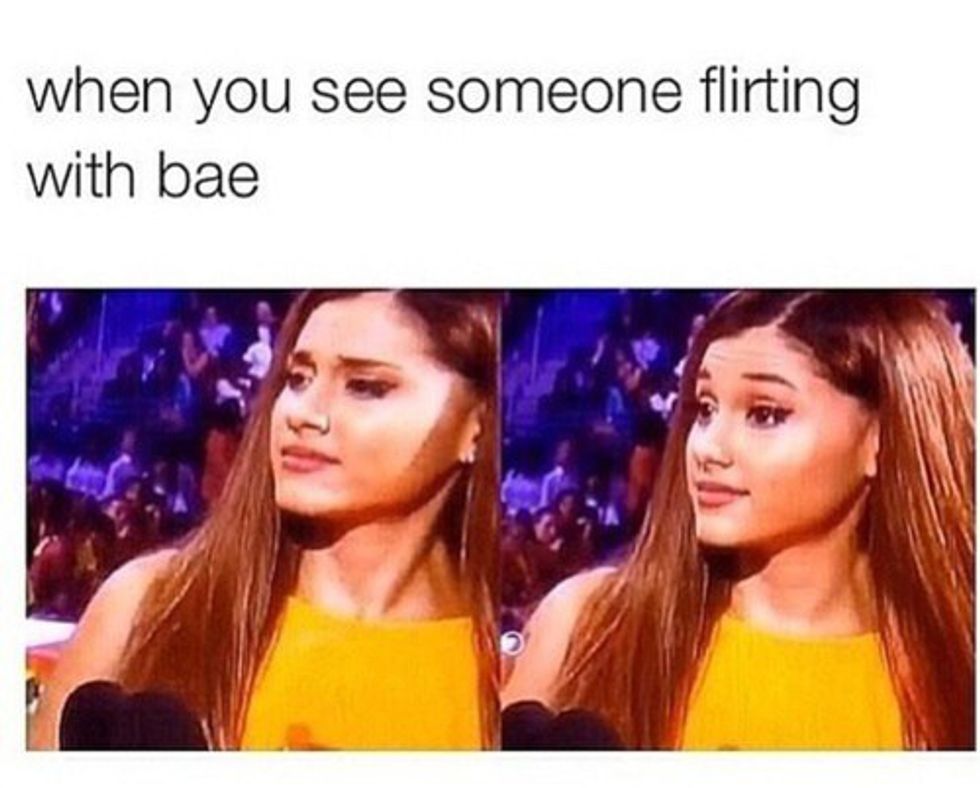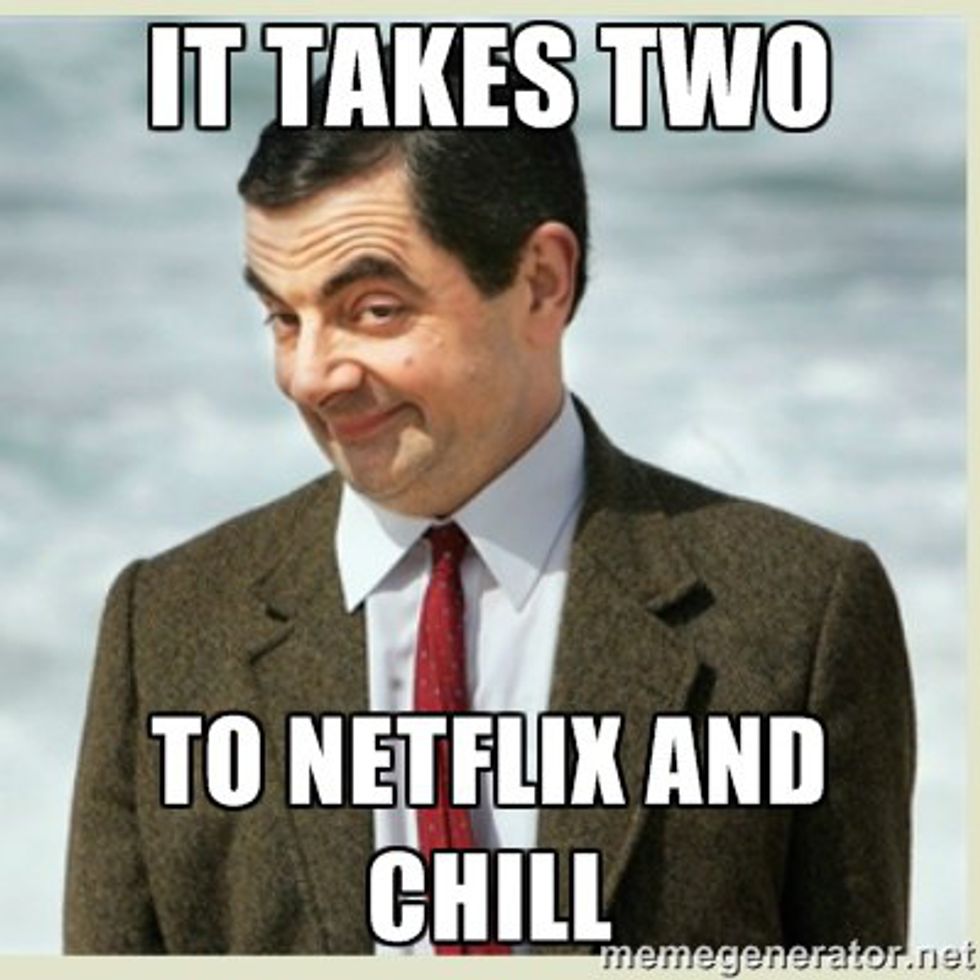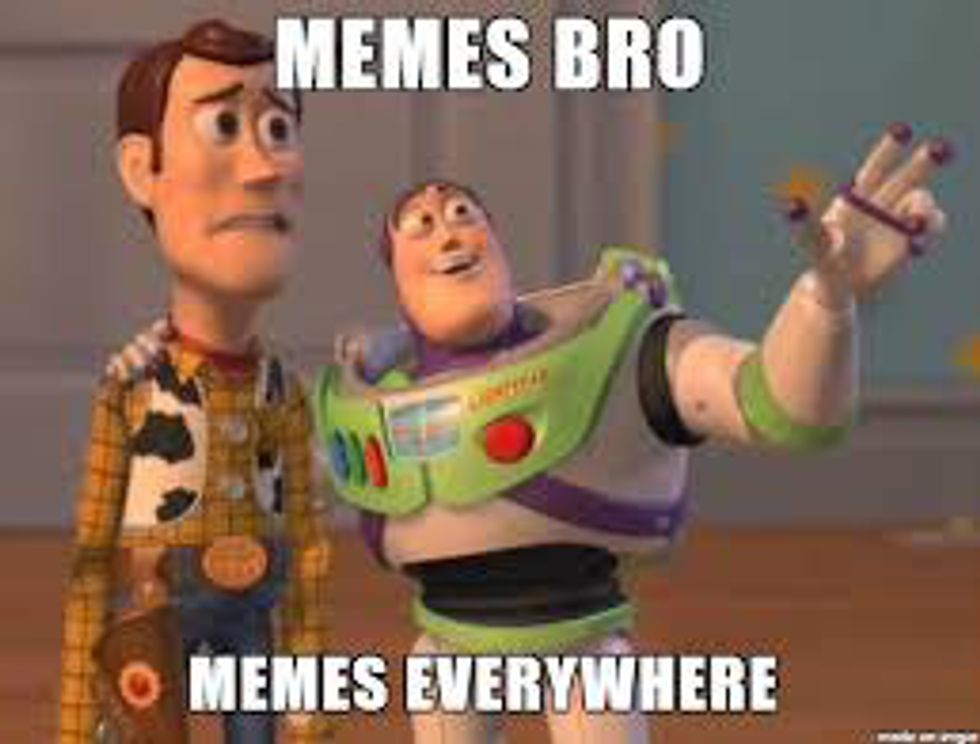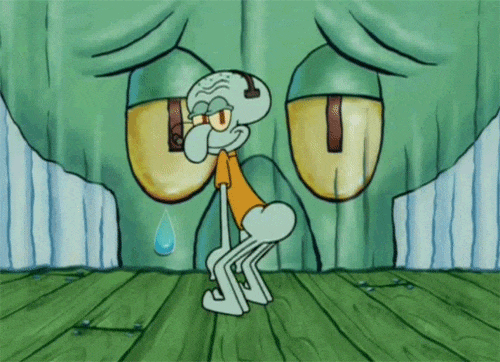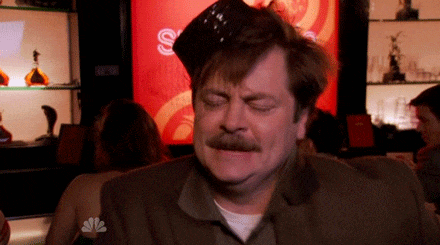Have you ever felt absolutely ridiculous for Googling a new word that everyone else already seemed to know? Do you remember your confusion the first time someone said ‘fleek?' These words are neologisms, defined by Merriam-Webster as “a new word or expression or a new meaning of a word.”
As a culture, we come up with neologisms all the time, and nowadays they spread faster than ever because of their use on social media. And, because of their popularity, we may know what they mean, but do we know where they come from?
Bae:
The term "bae" was first used in the 1500s in reference to the sound that sheep make, and (fun fact!) also means ‘poop’ in Dutch. But "bae" as we commonly know it appeared around 2013, as a shortened version of babe of baby, though some also attribute its use to the acronym “Before Anybody Else.” However, there is a strong chance this meaning was created after the word started to become popular.
Over time, "bae" has stretched beyond the simple use for a boyfriend or girlfriend (or someone you hope will become one) and has been used simply to mean something good (ex: “Pizza is bae”).
Fleek:
The first definition of "fleek" was submitted to Urban Dictionary by Dan Blue in 2003, stating that fleek meant “smooth, nice, sweet.” However, "fleek" was not truly popularized until 2014, when Vine user Peaches Monroee posted her famous video including the phrase “eyebrows on fleek.” Overall, a more solid definition is found on Merriam-Webster, in a category called Words We’re Watching: "The phrase on fleek—like the phrase on point, it’s used to mean basically 'perfectly done' or 'exactly right.'”
Netflix and Chill:
A euphemism for hooking up, the term “Netflix and chill” used to be used in a literal, not figurative, way. First, time for a quick history lesson:
In 2007, streaming for Netflix became a thing that exists. In 2009, Twitter user @nofacenina was the first to use the term “Netflix and chill” without any type of connotation: “I’m about to log onto Netflix and chill for the rest of the night.” (Yes, really, this is how it all began). In 2011, the term “Netflix and chill” was mostly associated with being an introvert’s way to say they are about to have a little "me-time" and watch a show. By 2012, “Netflix and chill” was being used as its own verb.
The teenage girls caught on in 2014. They started using the term “Netflix and chill” after realizing that boys weren’t necessarily aiming for a ‘chill’ movie night; more people spread the innuendo associated with the term, and the first meme about “Netflix and chill” picturing a condom was released to the internet. 2015 arrived, and we released all the memes! Everyone figured it out, and the term found a home on Urban Dictionary. You can view a fuller timeline of the phrase "Netflix and Chill" here.
Somewhere along the way, people were able to drop the “Netflix” and add the words “and chill” to anything, suddenly creating a new meaning. "Lord of the Rings" and Chill? Ramen and chill? And I kid you not, I have seen a poster board taped to a dorm room asking: “Blackboard and chill?” How romantic.
Meme:
The word "meme" comes from the Ancient Greek mimeme, meaning “imitated thing” or “to imitate.” "Meme" was used by British evolutionary biologist Richard Dawkins in his book "The Selfish Gene" in order to discuss the way ideas and cultural phenomena evolve over time. We now use the word to refer to a piece, or unit, that people use to exchange ideas and symbols through a “mimicked theme."
Twerk:
In 1820, twerk, originally spelled "twirk," appeared in the Oxford English Dictionary as “a twisting or jerking movement; a twitch.” Through the early 1900s, the word cycled through various meanings such as “a jerk,” “an ineffectual person,” “a change or variation” and “a twist.” In 1990, it finally was associated with the tell-tale dance between a twist and jerk, particularly after DJ Jubilee, ‘Jubilee All,’ played a song in New Orleans in 1993 that told the audience to: “Shake baby, shake baby, shake, shake, shake… Twerk baby, twerk baby, twerk, twerk, twerk.” Finally, on August 25, 2013, Miley Cyrus and Robin Thicke performed "Blurred Lines" at the VMAs, and the word entered regular vocabulary.
Turnt:
The first documented entry of "turnt" was in 2005, when Urban Dictionary user Erica Peters defined it as a state of being “drunk” or “crunk.” In 2008, KeyBee defined the term “turnt up” as “getting drunk” or “getting loose.” Use of the word circulated throughout the hip-hop music community. Overall, "turnt" can be traced as a variation “turned,” slang for being excited to go to a party or social event that usually involves drinking. So: “turn up” led to “turned” which led to “turnt.”
And there you have it. Neologisms may seem silly, and they often are, but they prove that language is still being determined by people as we use it. That is the beauty of a constantly evolving language. We don’t simply learn it and use it, we also sculpt it. It is a constant piece of humanity that we always are and always will be working on. And if you want to watch the video that inspired this article (and I highly recommend it), you can find it here.





